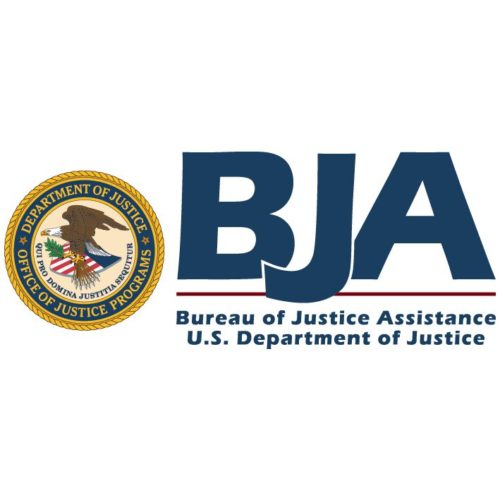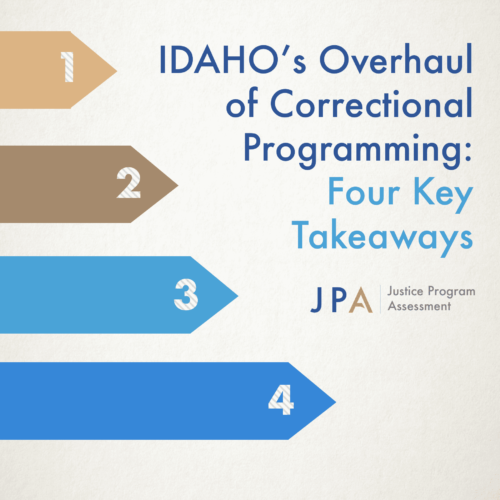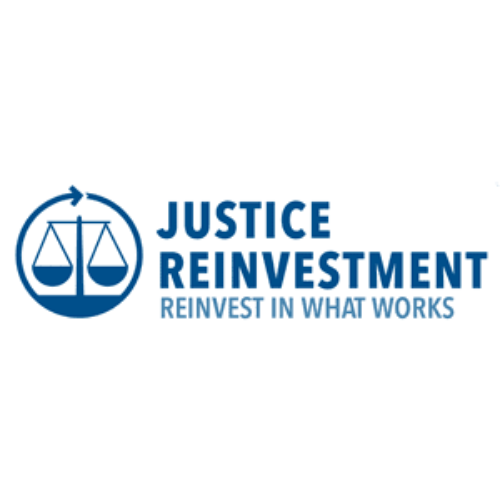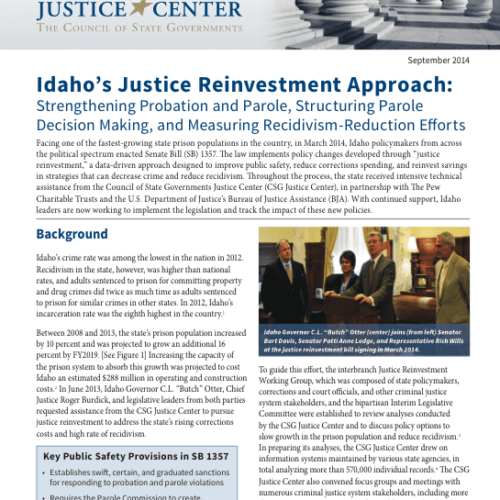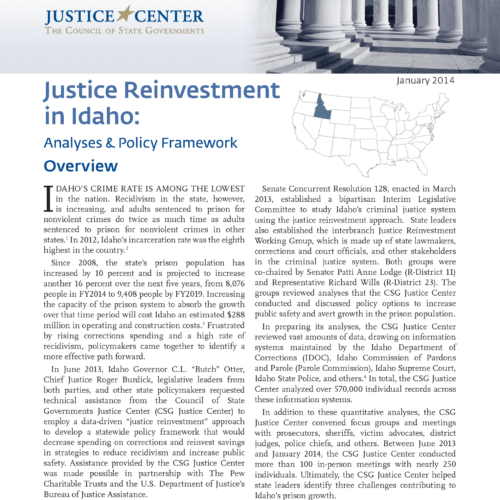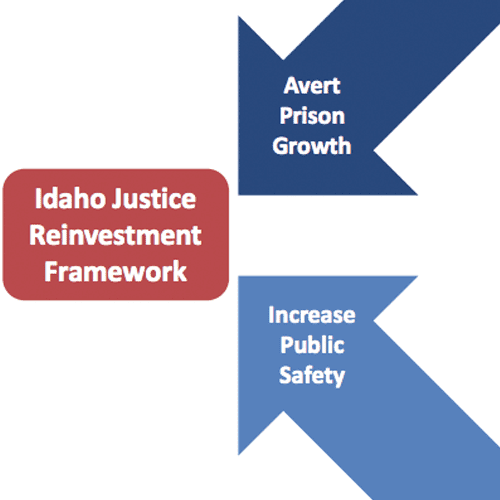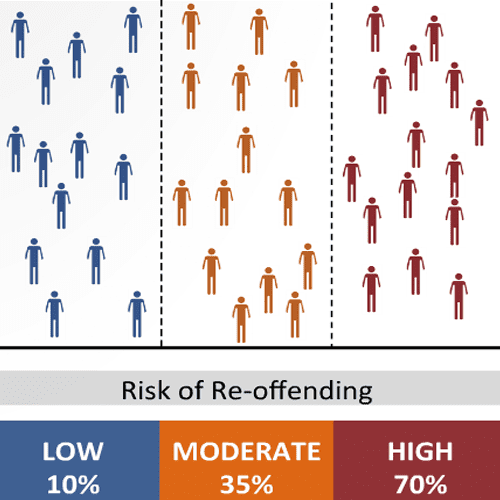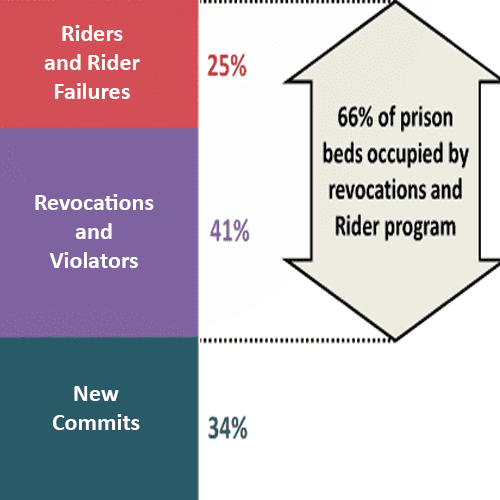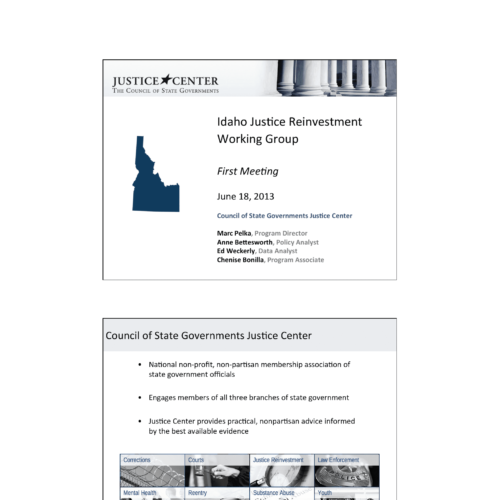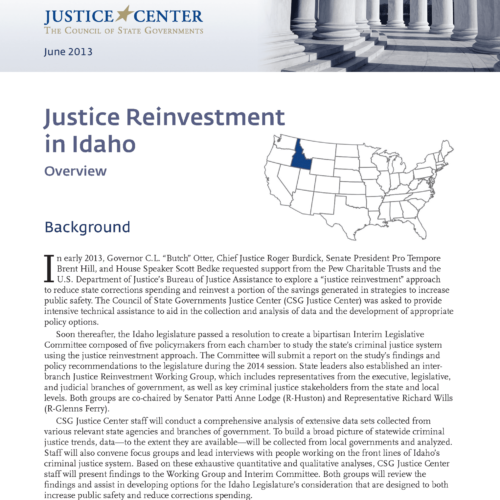Justice Reinvestment in Idaho
The Problem
In 2012, Idaho’s crime rate was among the lowest in the nation, but recidivism had increased between 2008 and 2012. Idaho’s prison population was projected to increase 16 percent between 2014 and 2019.
How JRI Helped
From 2013 to 2014, the CSG Justice Center worked with Idaho state leaders to develop data-driven policy options designed to reduce spending on corrections and increase public safety. CSG Justice Center experts analyzed Idaho’s criminal justice data and interviewed stakeholders across the criminal justice system. State policymakers enacted Justice Reinvestment legislation in 2014. Among other things, the law
- Strengthened supervision practices and programs designed to reduce recidivism and expanded limited supervision caseloads for people who are assessed as least likely to reoffend and have complied with supervision conditions;
- Tailored sanctions for supervision violations, provided recidivism information at sentencing, and structured parole to make more productive use of prison space and increased the number of people released to parole supervision; and
- Assessed, tracked, and ensured the impact of recidivism-reduction strategies.
Implementation and Impacts
Idaho has benefitted from the passage of this legislation in multiple ways:
- As of 2022, IDOC was housing 224 fewer individuals than the forecast in the JRI impact projection and 1,195 fewer individuals than the 2013 baseline projection.
- An initial decline in the prison population resulted in approximately $14 million in averted costs because of reduced bed needs.
- Additional outcomes resulting from the JRI reforms include the following:
- As of 2022, IDOC has collected more than $2.6 million in victim restitution payments and closed 1,106 restitution cases.
- Nearly all individuals convicted of drug or property crimes are being released within 150 percent of the fixed portion of their term of incarceration. Parole eligibility begins at 100 percent of the fixed portion, and this benchmark was established to improve the efficiency of an individual’s parole readiness.
- IDOC estimates that it has averted approximately $15 million in costs as a result of implementing a Limited Supervision Unit in the Probation and Parole Division.
The Idaho State Legislature has invested almost $60 million in improvements to its criminal justice system, including over $53 million in substance use disorder treatment since FY2015. They invested over $3 million in hiring and training probation and parole officers and developing a web-based reporting system for limited supervision caseloads to support implementation of JRI efforts.
The CSG Justice Center provided technical assistance to Idaho on the implementation of its JRI policies. In particular, the CSG Justice Center helped Idaho redesign its programming system for people in prison and on supervision, implement swift and certain sanctions, and develop an evidence-based and research-driven parole decision-making process.











